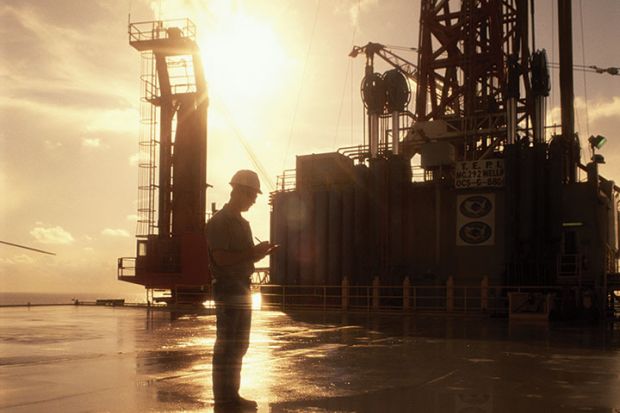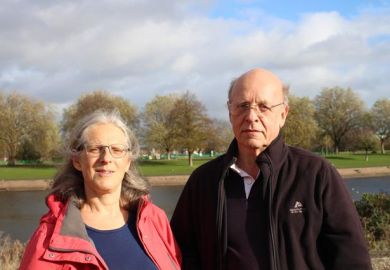The ongoing environmentalist revolution has inspired a generation of young people to think differently about the role they play in shaping our Earth’s future. Many want to know that their future career will have a positive environmental impact, finding sustainable solutions to interrelated global problems.
However, as Greta Thunberg and other environmentalists inspire us to take matters into our own hands, we must look carefully at how, practically, to create the change we’re asking for.
The numbers of UK students taking A-level geology has fallen by more than a quarter since 2014, with a knock-on effect on university enrolments. The reasons are many, but a significant part of the problem may be the perception that geology is the close relative of the extractive and fossil fuel industries, and that geology graduates are the natural future employees of large oil, mining or fracking companies.
The view of geology as a feeder for the oil and gas industries has historically made it attractive to young people, who saw it as a route to a successful career. That route still exists, but a degree in geology prepares students for far more and varied careers than that.
For most academics and educators working in UK geology or earth science departments, this exclusive popular association of our subject with oil and gas and extraction belies the diversity of research and interests that we pursue. The truth is that the modern geologist is interested in the formation and evolution of planets; the complex interactions among lithosphere, hydrosphere and atmosphere; the evolution of ecosystems; understanding natural hazards and mitigating their destructive potential.
Moreover, the minerals and metals required to power our low-carbon future are often buried in the Earth’s crust, requiring geological expertise to map, analyse, target and extract sustainably. High-capacity batteries, solar panels, turbines and electrical systems depend on precious metals such as indium, lithium, neodymium and nickel, stored in rocks beneath our feet. Exploiting geothermal energy resources requires drilling through strata and circulating hot fluids through porous underground networks. Building wind or solar farms requires geo-engineering for stable large-scale structures rooted on bedrock, as well as materials for motors and generators. Managing water resources for an increasing global population requires models for groundwater utilisation and aquifer dynamics. The geologist is a core player in all these endeavours and is, therefore, a key part of a sustainable and healthy future.
We have only to look at the current priorities of the UK’s primary funder of geology and earth science research, the Natural Environment Research Council (NERC). These are closely aligned with those of young environmentalists, aiming increasingly at projects that seek solutions to national and global environmental problems.
Geologists work on understanding processes that act on deep timescales of millions to billions of years. They know very well how changes in climate, such as ice ages and hothouse periods, can affect the biosphere and biodiversity.
All this feeds into academics’ teaching, too. A geology or earth science undergraduate at a research-intensive university can expect to join a community of scientists committed to delivering a sustainable future from day one of their degree. And if they go into the oil or gas industry on graduation, they will be well prepared to transform those industries and manage the move to a more sustainable, lower carbon energy sector from within.
The expertise derived from a geology degree is also transferable to a whole array of other disciplines and job markets. The modern geologist is increasingly quantitative, using physics and chemistry, biology, mathematics and engineering approaches to understand some of the largest, most complex systems around us. Those trained in this are able to synthesise diverse groups of data, interrogate large and often incomplete datasets, manage and quantify uncertainty, think laterally and build and test hypotheses. Such skills are critical in many graduate careers within business, management and beyond.
However, for geology to survive as a widely taught university subject, its reputation needs urgent rehabilitation – especially in the eyes of young people. This could be achieved by celebrating widely the scientific and environmental work done by geologists, and their role in shaping the energy future that we hope to build.
Similarly, supporting geology as a secondary school discipline and exposing younger students to the rich intellectual opportunities it offers would prepare the way for a new generation of environmentally minded geologists. Turning our backs on Earth and environmental research is not an option; our future depends on young people continuing to learn how the planet works.
Fabian Wadsworth is an assistant professor, Edward Llewellin is a professor, Richard Brown is an associate professor and Andrew Aplin is a professor and head of the department of earth sciences at Durham University.
POSTSCRIPT:
Print headline: Earth sciences are facing a crisis of sustainability
Register to continue
Why register?
- Registration is free and only takes a moment
- Once registered, you can read 3 articles a month
- Sign up for our newsletter
Subscribe
Or subscribe for unlimited access to:
- Unlimited access to news, views, insights & reviews
- Digital editions
- Digital access to THE’s university and college rankings analysis
Already registered or a current subscriber?








